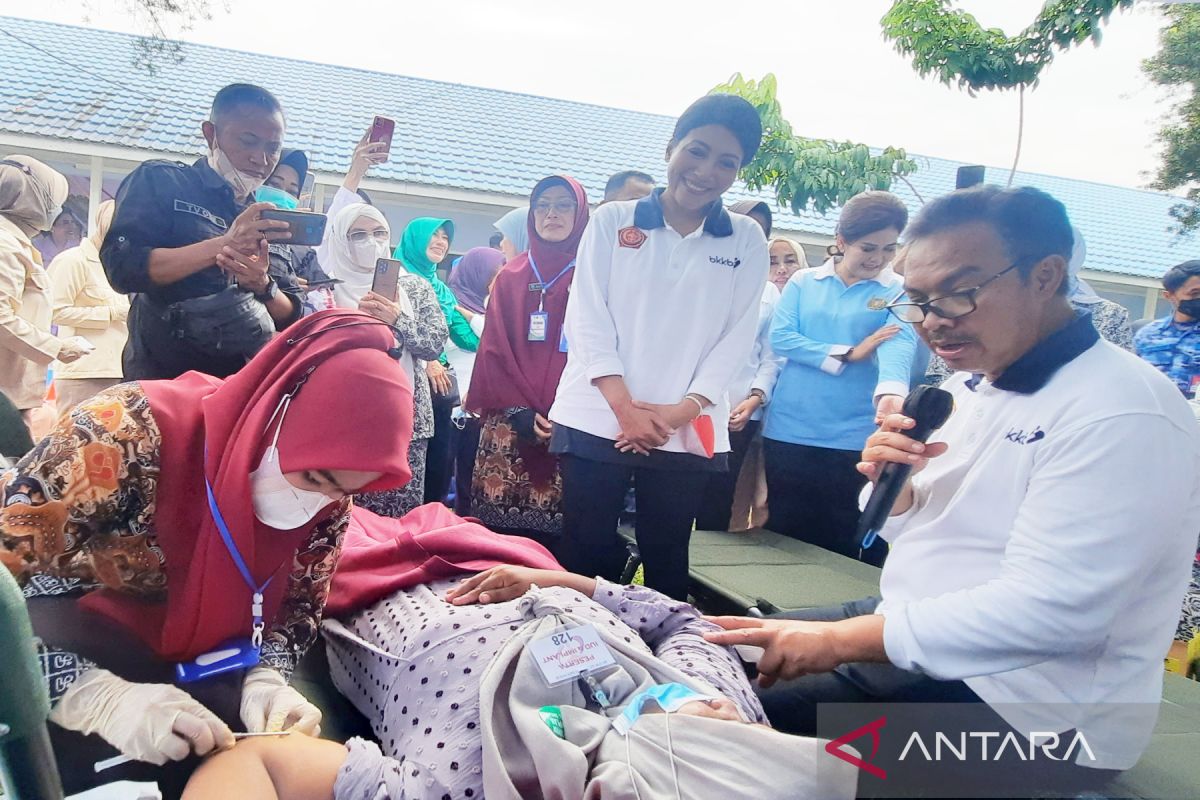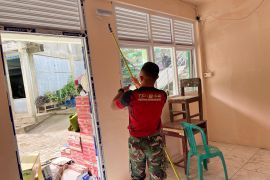I appreciate that there are 372 prospective (KB) participants, including men as well.Banjarbaru, S Kalimantan (ANTARA) - Head of the Population and Family Planning Agency (BKKBN), Hasto Wardoyo, has called for an improvement in sanitation facilities and environmental hygiene to reduce the high stunting rate in South Kalimantan province.
"Improving the (cleanliness of the) environment, especially rivers, becomes our special concern because it is one of the factors which causes (high prevalence of) stunting (cases)," he explained here on Thursday while reviewing stunting reduction efforts in the province.
The habit of some local residents to bathe and wash in the river is one of the challenges to maintaining a hygienic environment, he noted.
Another cleanliness-related problem in the region is inadequate air ventilation in houses, which is one factor for the transmission of tuberculosis bacteria that weaken children’s health.
"Hence, immunization is important to prevent tuberculosis, while a clean environment (is crucial) to prevent diarrhea. Regarding diet, I think South Kalimantan is very rich (in nutritious food), as there are enough fish and also abundant eggs," the BKKBN head said.
Thus, due to these multidimensional factors, stunting prevention efforts require collaborative work involving various institutions and sectors, he added.
For instance, the agency is cooperating with the Public Works and Public Housing Ministry to establish adequate toilet facilities and clean water wells in areas with a high risk of stunting.
Related news: KSP seeks stunting reduction across nation, including in border areas
Furthermore, the Indonesian military (TNI) is also helping provide clean water for the community.
Wardoyo said that in the province, his agency is trying to encourage the involvement of various enterprises in the ‘Foster Fathers for Stunted Children’ program as part of their corporate social responsibility (CSR).
“It (the donation fee for the program) is quite cheap -- only Rp15 thousand per day. I think there is a lot of potential (for the program to be implemented) here," he added.
The prevalence of stunting in South Kalimantan province, which is currently at 30 percent, is targeted to be reduced to 14 percent by 2024, he noted.
He said he expects the prevalence of stunting in the province to fall below 20 percent soon, since the World Health Organization (WHO) has set the maximum prevalence of stunting cases at 20 percent.
Stunting reduction attempts in South Kalimantan are being conducted by the BKKBN in collaboration with the TNI and the Agriculture Ministry.
In addition to the BKKBN head, the review of stunting reduction efforts in South Kalimantan was also attended by the general chairperson of the Association of Military Officers’ Wives (Dharma Pertiwi), Diah Erwiany Trisnamurti Hendrati Andika Perkasa.
The two officials also handed over assistance for health facilities and the community as well as dispatched a number of social assistance to be directly disbursed door-to-door by TNI officers to the residents.
The general chairperson of Dharma Pertiwi also reviewed the implementation of the family planning program (KB) at the Indonesian Air Force’s Sjamsudin Noor Hospital in Banjarbaru city.
"I appreciate that there are 372 prospective (KB) participants, including men as well. It is our joint effort to maintain reproductive health and control pregnancy to prevent stunting," she added.
Related news: Lack of awareness of healthy lifestyles behind stunting: BKKBN
Related news: Central Java holds Egg Consumption Mass Movement to reduce stunting
Translator: Firman, Uyu Liman
Editor: Suharto
Copyright © ANTARA 2022












